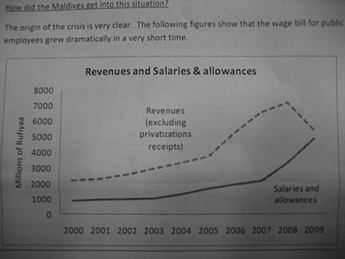The Ministry of Foreign Affairs has accused DRP MP Ahmed Nihan of “irresponsibly” spreading false rumours that Guantanamo Bay detainees had been secretly brought to the Maldives, calling his claims “not only false but designed to mislead the public and create mistrust.”
Nihan yesterday claimed he was “99.99 percent sure” that the detainees had already been brought to the Maldives, an assertion the government has “categorically rejected”.
“The Maldives government, last December, publicly announced its intention to contribute to the closure of the Guantanamo Bay detention facility by receiving a few innocent detainees in the Maldives,” the Ministry said today in a press statement.
“The governments of the United States and the Maldives are carrying out bilateral discussions to establish the legal framework within which the humanitarian transfer will take place, in full compliance with the laws of the two countries, and in manner that will ensure that the persons invited to the Maldives will not a pose a security threat to the Maldives,” it added.
Accepting detainees would “directly contribute to the enhancement of the national interests of the Maldives, through promotion of human rights and solidarity with fellow Muslims, and strengthening partnership with countries who cherish freedom and human dignity,” the Ministry said.
Nihan, who said he was on his way to Mecca for a pilgrimage, today claimed that “a press statement is not enough to prove I’m wrong.”
“I wonder why they are so worried about what I said?” he asked, accusing Foreign Minister Dr Ahmed Shaheed of “speaking in double tongue.”
Nihan argued that the government had not been open with the public on the matter, saying “I’m sure the government can clarify that 0.01 percent. Parliament’s National Security Committee will be requesting information from immigration regarding people who had visited the Maldives with improper passports.”
He said the government, “especially President Nasheed and the Foreign Minister Dr Shaheed”, “should be more open to the public regarding the Guantanamo Bay issue if they really want to prove that the gitmos are not here already.”
